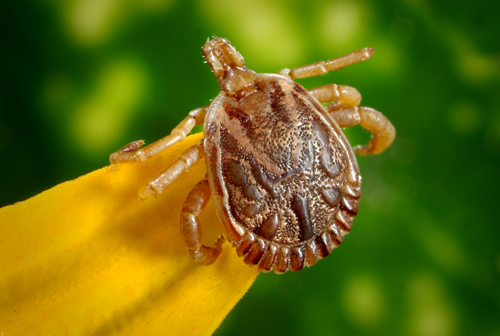As summer winds down, we anticipate not only the change in season, but also the changes we make in everyday life. There will be less cookouts. Less long days of outdoor play for the kids. There will not be less ticks.
Central Mass tick control is not just something we do in the spring and summer, and then hang up until next year. In recent years, Central Mass residents have wised up to the importance of tick control even after the temperatures have begun to fall. Why is tick control in the fall so important?

Ticks are looking for their reproduction blood meal in the fall.
White-tailed deer are on the move, and so are ticks! Female ticks are looking for their blood meal, which is necessary to produce eggs. When they are successful in reproducing in the fall, thanks to the blood meal they received from the deer population, their eggs will hatch in the spring. And so the cycle continues – a never ending cycle of tick reproduction, right? No, it doesn’t have to be this way!

Female ticks lay their eggs in nests of mice.
Most of the fertilized tick eggs will be left to incubate in the nests of white footed mice. The larvae ticks will be looking for their very first blood meal next spring, and will find that blood meal from the mice, who have given them a cozy spot to survive the winter.
Practice Central Mass tick control in the fall.
The best way to eliminate ticks is with professional tick control, and the best way to get a jump on next year’s tick population, is to have your yard protected in the fall. A time-released, EPA-registered tick control spray will eliminate up to 95% of ticks in your yard and around your home. October and November are the prime months that female ticks are looking for their final blood meal. Stopping them from being able to do this will halt the reproductive process. Thus, greatly decreasing the number of new ticks that will hatch in the spring.

A tick tube program will provide even more tick protection for your family. Tick tubes are placed where mice make their nests. Inside a small tube is cotton, which is treated with tick control insecticide. Mice will use the treated cotton to create their nests, and will get the insecticide on their fur and skin in the process. Ticks in search of a blood meal will come in contact with the insecticide, and be eliminated – stopping the nasty tick life cycle!
Stopping the tick life cycle isn’t just about eliminating nasty pests. It’s about protecting your home and family from serious tick-borne illnesses, such as Lyme disease and the Powassan virus.